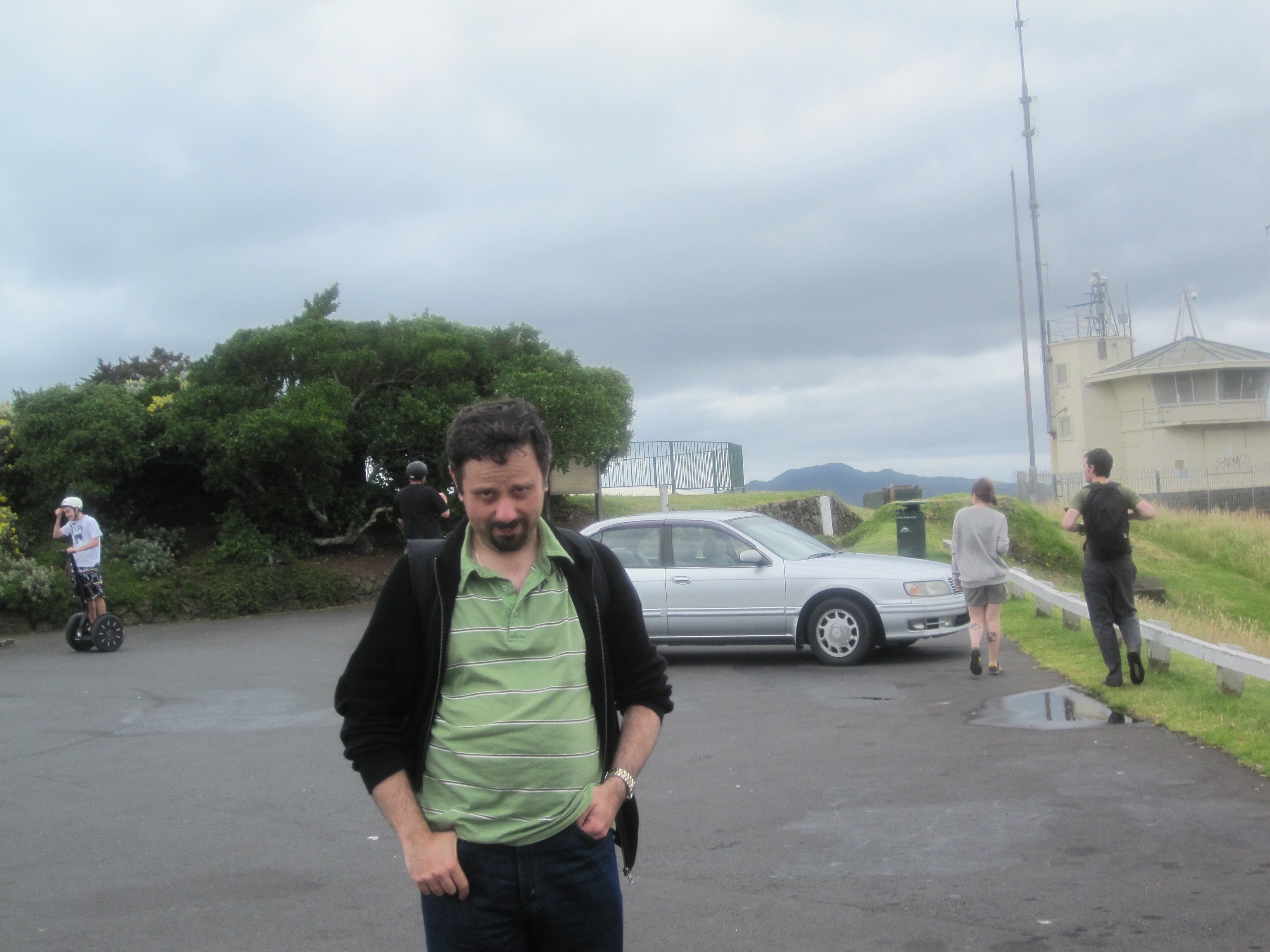Well, this will be an odd response.
Clarinet Concerto (Nielsen). Which is a companion piece, to my mind, to Symphony No. 5 (Nielsen).
Well, this will be an odd response.
Clarinet Concerto (Nielsen). Which is a companion piece, to my mind, to Symphony No. 5 (Nielsen).
McKayla has already responded that she is not, to her knowledge, related to one John Michael “Ozzy” Osbourne.
To which I submit the evidence I tabled the last time this issue came up:
https://www.quora.com/What-diffe…
And someone thinks she looks like Ozzy.
*Goes to McKayla’s profile page*
*Stares at enlarged profile pic*
*Stares some more*
*Looks for very, very young Ozzy pic*
… Not… as absurd as you might think…
This has already been answered by Mark Blanchard in the negative, in: Mark Blanchard’s answer to Do any credible scholars consider the speech given at the end of the “Great Dictator” to be one of the best in history?
I put The Great Dictator on Hulu last night, with high expectations: I’d known of the film since childhood, particularly the dancing with the globe scene, and my childhood in Greece had been fed on a steady diet of Charlot. (And it will always be spelled Σαρλώ with an omega, dammit!)
Reluctantly, I must agree with Mark.
Pros of the film:
Cons of the film:



Maudlin, over-long, preachy rather than persuasive.
Much better in the YouTube version with modern visuals and EDM tinkling in the background, than in the original.
No.
Nice to see the koppa though: Ϟ. And if I didn’t know any IPA, I’d have congratulated you on the phi too: φ.
For the same reason we don’t attribute the Atomic theory to Democritus (or Jain cosmology), but to John Dalton.
Democritus came up with a theory that there are indivisible atoms of matter. Heraclitus that fire was the first principle of all things, and Thales that it was water. These philosophers were philosophising; what they were not doing was science as we understand it. They were throwing up ideas and seeing what might stick, but without what we would consider empirical evidence. If Democritus and not Thales turns out to have been right, it was entirely by accident.
Same with Aristarchus and Copernicus. Even if Copernicus had read up on Aristarchus (e.g. Aristarchus and Copernicus; see also Gingerich, O. “Did Copernicus Owe a Debt to Aristarchus?” Journal for the History of Astronomy, Vol.16, NO.1/FEB, P. 37, 1985, cited in Wikipedia), Copernicus based his work on observational data (De revolutionibus orbium coelestium). The real work cementing it all, as Wade Schmaltz points out, came later with Galileo and Kepler; yet even what Copernicus did was in a different paradigm from the idle ideations of the ancients.
I was in my first year of my PhD. It’s that time when you try sooooo hard to impress your supervisor. You are so eager to prove yourself. You are the first one to get into the lab and the last one to leave.
So, it’s my birthday and I’m not feeling all that well (PMS) but still I go to work early and start working but nothing works. I am preparing an SDS-gel for an electrophoresis and I break the glass plate. Try a second time, break a second one. You should know these were rather expensive back then. Finally, on the third try, I get it right, set up the equipment and plug in the power supply. Puff, it short circuits and dies. I am close to tears but I still want to run my gel. I take a second power supply, plug it to a different socket and puff! second power supply short circuits and the lights go out in the lab. A fuse or something burned. Now, I have to leave because I’m close to having a melt-down.
First, I have to report to my boss. He was a 65yo professor, very distinguished looking, tall, a bit on the heavy side , full mane of white hair. He had a reputation for being very strict. So, I go into his office and stand in front of his big desk literally shaking from suppressing my tears and tell him my story. He looks at me over his glasses for a moment, gives me a reassuring little smile and says: “Oh, dear! Why ever did you stay after breaking the second glass? Next time you’re having a day like this, tell me and i’ll give you the day off. Now run along and go home and forget about everything.”
I was so thankful, I could have kissed him.
P.S. His daughter was about 10 years older than me and I was about the 40th (and last) PhD student he had supervised.
https://www.quora.com/Whats-the-…
*Rummage rummage*
Why yes. I do think I have a picture of this incident…
Note if you will the evolution from Dimitra’s infancy hairstyle…
Why won’t they be banned by Quora Inc.?
Is it bad to ask questions on Quora that could easily be answered via a Google search?
In particular, Charlie Cheever’s answer (Quora is a cache for Google) and Adam D’Angelo’s answer (Quora is a cache for Google, plus the answers will be better anyway.)
That’s Quora Inc.’s perspective. For what Quora users think of this perspective, see e.g. Robert Frost’s answer .
Read it.
No, srsly. Read it.
(And for amusement, compare Robert Frost’s answer to Why do some people ask questions on Quora that could easily be answered by using a search engine? two years previously.)
What Patrick O’Neill describes is an edge case. The questions I’ve seen in the Greek feed, and most of you have seen on your corresponding language feeds, are mostly not ríastrad , or a culture-specific notion as in How do I translate the Greek word filotimo?
Instead, you see
As they stand, these are not questions for which a Google Translate query is not adequate.
Robert Frost, I would argue, changed his mind between 2013 and 2015—because
It clutters the feed with crap. I expect my feed to be filled with content that will be interesting to read, not simplistic factoids that can be found anywhere. Encouraging easy questions on Quora makes Quora a less enjoyable place for me.
Well, Anon, I was 39. Had had two and a half girlfriends, and had just been dumped by one of them after a six month relationship. I’d pretty much resigned myself that I was going to hit 40 without a partner, and that would be the end of it.

People at my workplace heard too much about all of that. Including one Tamar E. Tamar E. was an annoying corporate presence at work, who’d pilfer my Bach CDs and talk about her dog and get on my nerves. As, I gather, I got on hers.

Time came, eventually, for one Tamar E. to leave my workplace. The last day she was at my workplace, she dropped her guard, and talked about her fears and feelings, which got my attention. I made sure a couple of us took her out to dinner, and walked her back to her car, which got her attention.
And over the next few months, we’d catch up for lunch or dinner every couple of weeks, and chat. To the surprise of everyone that knew us both.
Tamar one evening was feeling down in the dumps, at the house of the colleague who we went to dinner with. The colleague said that she was too young to be hanging out with old-timers like her; she should be out having a good time, and enjoying herself while she could.
So, inspired by her colleague, she went through her contact list. X was out of town, Y was on a date, Z she hadn’t seen in too long… right after the archly gay M, who decided he had better things to do that evening, she fell on Nick’s name.
So Tamar randomly called Nick, and asked if he wanted to go for a drive.
And it was random alright. She was driving erratically, she was nervous, she was talking too fast. By the time we’d left the café, Nick could totally tell. She was into him.
Which was the furthest thing from Tamar’s mind. (Remember, she’d called the archly gay M before Nick.)
So. Tamar had to get home from the café, and Nick was kind enough to drive. Halfway there, Tamar needed to go to the bathroom. Could Nick stop at a pub or something?
“Well… I’ve got a bathroom at my place.”
When Tamar came out of the bathroom, there were two shot glasses of Croatian walnut brandy waiting. Because, well, Tamar’s a visitor, and that’s what you offer visitors. Only, Tamar, don’t scull…
*gulp*
By the time Tamar retired into the guest bedroom, in no state to drive, Nick had decided this was so, so going to happen.
It so, so didn’t. The next morning, Tamar ran out in a mild panic.
And Nick invited himself along for breakfast.
And after breakfast, Nick tried to kiss Tamar, and Tamar ran out in a less mild panic.
Reader, I married her. (Three and half years later, to the day.) We got together the following week.

What is the takeaway lesson for you, Anon?
If Tamar hadn’t decided to take a chance that night, and just live a little, nothing would have happened.
If Nick hadn’t decided to take a chance, and totally misread the cues Tamar was sending (or at least, interpret them prematurely), nothing would have happened.
If Tamar hadn’t decided to take a chance, and ask me if I meant to kiss her a week later, nothing would have happened.
If Nick hadn’t decided to take a chance, and said, yes I did, and then do it, nothing would have happened.
Take a chance. How much, truly, do you have to lose?
The Philogelos is the oldest extant collection of Greek jokes (as opposed to one-offs cited elsewhere in ancient literature). It dates from maybe the 4th century AD, so your definition of “Ancient Greek” may vary.
Are they funny? Well, you tell me:
Language is one of the primary vehicles of culture, and expressions of cultural distinctiveness. But it is not the only one.
When a language dies, the language community has been linguistically assimilated into another community (assuming the community hasn’t been genocided). That is typically associated with cultural assimilation. But not always.
As a counterexample to both: Irish culture, which is not dependent on the (now tenuous and mostly emblematic) survival of the Irish language. Yeats was no less Irish for writing in English. But Ireland is an island country, and can sustain a distinct culture more readily than, say, Sorbian.